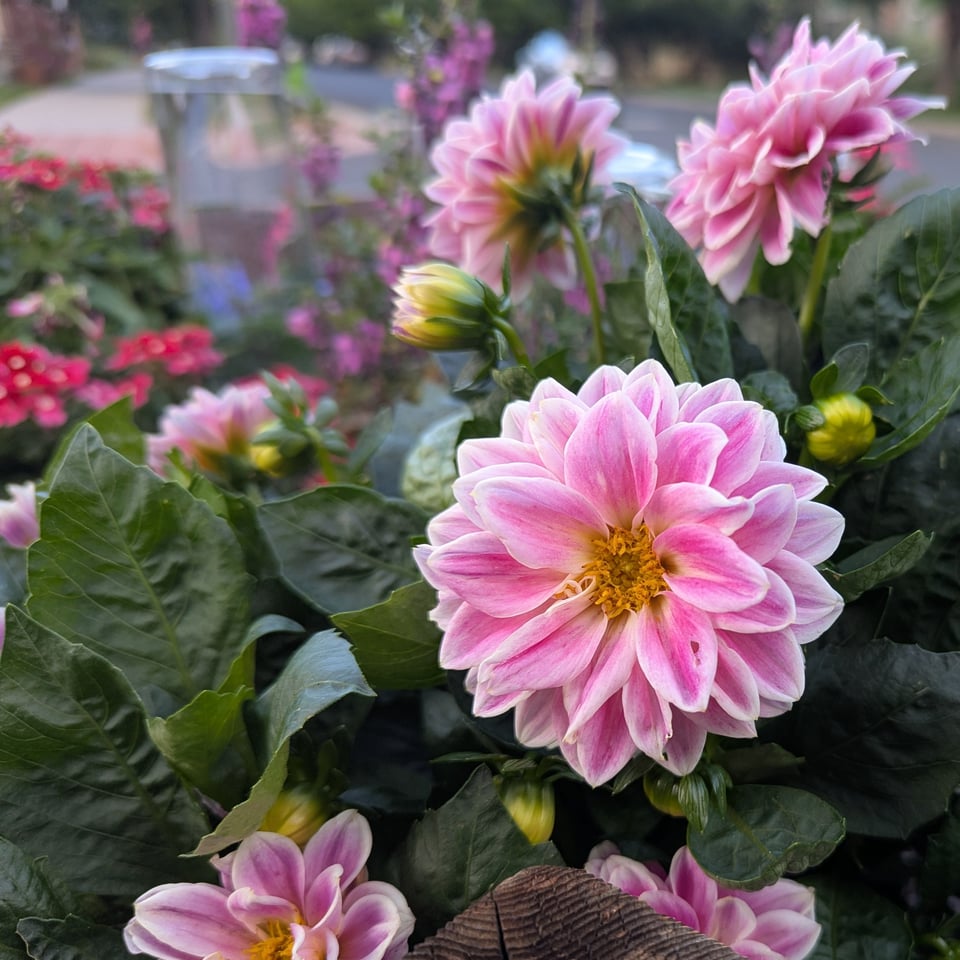deprogramming
Prime be with you. (And also with you.)

Those of you familiar with my casual heathenism may be surprised to learn I grew up Lutheran (or you may not; the protestant-to-pagan pipeline is probably overflowing with white women like me). It was a part of my life I enjoyed and valued—for the community, for the ritual, for the feeling of wonder and appreciation that comes with believing in something much greater than oneself.
I shed my religion some time in college (TL;DR: took an astronomy class) and while for the most part this felt less like loss and more like change, there were specific moments for a few years where I felt the absence of that belief as true negative space. These moments usually coincided with religious holidays.
I remember waiting for a flight at the airport once and seeing a group of young folks with ash crosses on their foreheads. I was struck first by the fact that Ash Wednesday was no longer an observance that meant anything to me, and then by the recognition that I had completely forgotten it was happening. This particular stretch of the calendar year was blank to me now, where it had once been filled by important dates. Mardi Gras and Ash Wednesday were stops on the road from winter to spring where I had once taken rest, but now drove past without even noting the turn-off signs. At the time I didn’t quite feel sad, but I did feel like my life had a little less in it than it did before. It was a feeling at once liberating and disorienting.

To a much smaller extent, I had a similar feeling the other week when I saw an ad for Prime Day, an observance celebrated by a cult to which I do not belong, which I was blissfully unaware was even happening until its evangelists found me.
This is not to say that the deeply held religious beliefs of billions of people around the world are the same as the pathological consumer habits of billions of people around the world, but… well, to an outsider, there are some similarities.
In the absence of a stronger religious or spiritual presence in our culture, I do kind of think sales are distinctly American holidays. They get people to gather (less and less in physical stores these days and more and more online). They unite us for a common purpose (to acquire material goods). They are celebratory and festive. They follow familiar rites and rituals.
Much like the early Christians once moved their observances around the calendar year to trick pagans into celebrating Jesus, most big sales have the good sense to tie themselves to existing holidays, like Thanksgiving or Labor Day. But Prime Day is different. Rather than piggybacking off of a more established observance, Prime Day says, “Listen, I know why you’re really here. You wanna buy stuff. So let’s just cut the crap and call this whole song and dance what it is: the cult of consumerism in its purest form.”

While I was never devout, I have certainly celebrated Prime Day in the past. I remember scouring the site back in my early 20s, looking for Good Deals on things I Might Need. In some cases, I’m sure I used the opportunity to make necessary purchases I had long been putting off. But for the most part, Prime Day, like any other sale, was just a trick that I fell for to buy things that I probably wouldn’t have bought otherwise.
For a good five years now, though, I have not been an Amazon Prime member, nor have I been a participant in the Amazon ecosystem generally unless as a last resort. My account tells me I’ve placed 13 total orders since 2021. (In the 2016–2020 period, by comparison, I placed 66 orders.) The significant reduction of Amazon from my life has meant that, yes, I have found ways to get things elsewhere. I’ve learned it’s easy enough to buy, say, razor blade replacements directly from the company that makes them instead of Amazon, and that it’s worth my time to drive to a craft store for new knitting needles instead of ordering from Bezos-land. I have also simply been buying a lot less shit. It’s amazing what you learn you don’t need when acquiring new possessions is no longer a frictionless activity. It’s amazing how little you feel is missing from your life when you recognize how little you needed in the first place.

Again, I do not mean to suggest that God and Jeff Bezos are the same thing, that people should shun them equally (or at all). The feeling I had the first time I “missed” Ash Wednesday was complex; the absence of faith was true to who I was and what I believed, but there was a sadness in letting go of the things that it came with. Religious practice injects meaning into people’s lives; it creates community and often encourages people to simply do good things for other people. (I know this is not the case for all flavors of religion, but it certainly was for my hippie-ass church in Boulder, Colorado.)
The cult of consumerism, on the other hand, does none of these good things—in fact, in most cases, it does the opposite. Instead of creating meaning, it works hard to strip our lives of meaning and intention by making the objects we possess as disposable as possible, by furthering the enshittification of all things so that we are obliged to buy more things, more often, forever. Instead of bringing people together, online shopping has plunged us deeper into isolation by creating a system whereby we can access everything we might need or want without interacting with another human being. Consumerism is a cult of garbage, a cult of mindless greed, very much a cult of “the drink would not satisfy, food turned to ash in our mouths.”
In short, it sucks. It should not be celebrated or endorsed. Its tithe should not be paid. Instead of saving us, the cult of consumerism is dragging us into whichever is the lamest and stupidest of Dante’s nine circles.
But I am happy to tell you that you can leave at any time.

Recommended Reading
What does intifada really mean? More importantly, “who gets to define its meaning and who gets to have their intentions and the validity of their concerns defined by others”?
This is either preaching to the choir or about to make you very angry: “The plain fact is that the climate crisis cannot be addressed within capitalism.”
Uh oh, she’s recommending another hour-long YouTube video. This one is about algorithms, attention, and not giving up on the times or our capacity to exist thoughtfully in them. (It also triggered my semiannual itch to go back to school for a media studies degree.)
“I was doing my own research, by which I mean I was taking in data from disparate sources with differing degrees of credibility on a bewilderingly complicated issue and analyzing it with sophomore-year scientific literacy before making consumer decisions driven by single-issue neuroticism and a penchant for online shopping.” ← I’m In This Photo and I Don’t Like It
